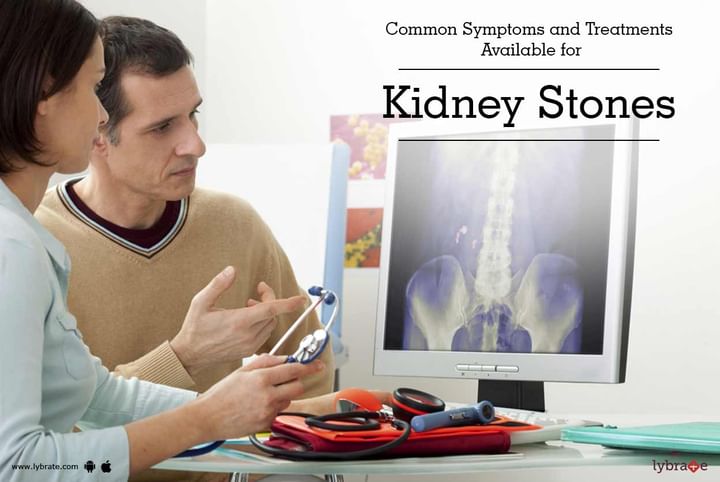Common Symptoms and Treatments Available for Kidney Stones
Our kidneys are an important organ in the body and are responsible for the filtration of blood and creation of urine. Sometimes, during this process salt and other chemicals get stuck together to form small crystals also known as kidney stones. The size of a kidney stone can range from the size of a sugar crystal to the size of a ping pong ball. However, it is noticed only if it is large enough to cause a blockage. Smaller stones may pass out of the body without you realizing it.
Kidney stones can be a very painful experience. Some of the symptoms exhibited by patients suffering from kidney stones are:
1. Severe back pain
2. Pain in the belly or groin
3. Painful urination
4. Frequent urination
5. Nausea and vomiting
6. Blood in the urine
Excruciating pain is usually the symptom that makes a patient consult a doctor in cases of kidney stone problems. A confirmed diagnosis can then be made by using a series of tests that include an X-ray, ultrasound, CT scan and urine analysis. A blood test may also be conducted to check the mineral levels in the body.
Kidney stones are a common condition faced by many people, but some people are at a higher risk of suffering from this than others. Some of these factors are:
1. Family history of kidney stones
2. High uric acid levels in the blood
3. Being between 20-50 years of age
4. A previous kidney stone
5. Chronic diseases such as diabetes and high blood pressure
6. Some medication such as diuretics and antacids with calcium
7. Inadequate fluid intake
Between men and women, the former are at a higher risk of suffering from kidney stones. Asians and Caucasians also suffer from this condition more than people from other races. Hormone changes during pregnancy can also trigger the formation of kidney stones.
The first thing to do if you suffer from a kidney stone is to increase your water intake. This can help dissolve some of the minerals in the stone and make it a small enough to pass through the urethra. Injectable anti-inflammatory drugs and pain relievers may be used to ease the pain caused by kidney stones.
If the kidney stone does not pass on its own, a process known as lithotripsy may also be used. This involves the administration of shock waves that can break a large stone into smaller pieces. In extreme cases, surgical techniques may also be used. If you wish to discuss about any specific problem, you can consult a doctor and ask a free question.



+1.svg)
